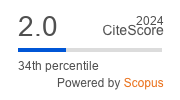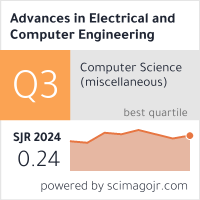INFORMATION ON ORIGINALITY / PLAGIARISM
Definition: A widely accepted definition of plagiarism is "reuse of someone else's prior ideas, processes, results, or words without explicitly acknowledging the original author and source". "Someone" may be others or even yourself.[Source]
SELF-PLAGIARISM IS PLAGIARISM
Regarding this subject there are many opinions, but all scientist and editors agree the plagiarism should not be promoted in scientific publications. Regarding the self-plagiarism problem, Catriona Fennell, director of journal services at Elsevier, said "Sometimes [text reuse] is just unavoidable,". "Really, how many different ways can you say the same thing?" Because scientists tend to study the same topic over many years or even their entire careers, some aspects of their research papers, particularly the literature review and methodology, will be repeated. Once they've figured out how to word it succinctly and accurately, some argue, it's best left unchanged. "You're laying the groundwork for an ongoing discussion [so] making changes might actually be a bad idea," Scanlon said. "It would muddy the waters." [Source]
Steven Shafer, Editor-in-Chief of Anesthesia & Analgesia, said that the publication does not retract papers that only reuse text in the methodology section. "This is a very difficult area," admitted Shafer. While the recently retracted paper contained "multiple areas of duplicated verbatim or nearly verbatim text throughout," he said, not all cases are so straightforward, and each one "must be a judgment call." [Source]
More details on plagiarism may be found by searching the web or on special dedicated pages of the most well-knows journals.
HOW DO WE PROTECT AGAINST PLAGIARISM ?
1. We use automated software programs for checking against plagiarism. The generated reports are carefully checked and confirmed by human, in order to avoid false positives. We do not send plagiarism reports to authors.
2. We require all authors to sign a copyright form. As an author, it is your single and own responsibility and you know before sending the paper if it contains or not plagiarized text - you are the author and you signed the copyright transfer form.
3. We have zero tolerance to plagiarism and we apply policies regarding the plagiarizing authors - rejection of all submitted papers is one of them.
We make real efforts to provide services to the authors at a highest possible level, including the web-site, the information for authors, the OpenConf submission interface, etc. The Submission Status interface is one of the most complete of its' kind (you may find out even the estimate issue where your paper will be published, if accepted). Based on this, we require from your part not to send plagiarized texts as it is a waste of time for both parts. As the number of plagiarized papers we received in the last time period increased at a hard to imagine level (more than 60 % of the total papers evaluated for an issue were rejected for plagiarism) the Editorial Board decided to create a "banned author list" containing the names and E-mail addresses of all plagiarizing authors. Based on reviewers' recommendation in the most severe cases the respective authors will not be able to make new submissions.
WHAT SOFTWARE DO WE USE ?
Many authors asked us "What software do you use to check my paper ?". We used over the time many programs and methods. We assure you every submitted paper is verified with at least two programs, followed by a human check of all reports and several manual checks over the Internet. Reviewers also add valuable contribution to this when they evaluate the paper. A list of originality check programs with links to the respective home pages - in alfabetical order, may be found bellow:
YOUR PAPER IS NOT ORIGINAL. WHAT'S NEXT ?
We define three levels of plagiarism:
- Level One pertains to the uncredited verbatim copying of a full paper, or the verbatim copying of a major portion (> 20%), or verbatim copying within more than one paper by the same author(s);
- Level Two pertains to the uncredited verbatim copying of a large portion or individual elements (Paragraph(s), Sentence(s), Illustration(s), etc.) (between 11 and 20%) or verbatim copying within one or more than one paper by the same author(s);
- Level Three pertains to uncredited improper paraphrasing of pages or paragraphs uncredited verbatim copying of individual elements (Paragraph(s), Sentence(s), Illustration(s), etc.) resulting in a significant portion (up to 10%) within a paper or credited verbatim copying of a major portion of a paper without clear delineation (e.g., quotes or indents);
Depending on the level of plagiarism identifyed in your paper, actions will be taken:
- Notice of violation;
- Rejection and return of papers in review and queues;
- Prohibition from publishing in AECE for up to 5 (five) years.
CONCLUSION
As an author, we require you to follow the academic publishing rules and you will never ever need to read this page or others dealing with this very sensitive subject. We may assure all authors we will review with extreme care their works.
IMPORTANT
From the time you upload the paper file for the first time to the end of the evaluation process, and just several days before the publication day, we make plagiarism checks. The rejection for plagiarism decision may occur in any phase, even if your paper was accepted for publication, even after you paid the publication fee (if you paid the publication fee and your paper is clearly identified as plagiarizing other papers, you will not be eligible for a refund).
Faculty of Electrical Engineering and Computer Science
Stefan cel Mare University of Suceava, Romania
All rights reserved: Advances in Electrical and Computer Engineering is a registered trademark of the Stefan cel Mare University of Suceava. No part of this publication may be reproduced, stored in a retrieval system, photocopied, recorded or archived, without the written permission from the Editor. When authors submit their papers for publication, they agree that the copyright for their article be transferred to the Faculty of Electrical Engineering and Computer Science, Stefan cel Mare University of Suceava, Romania, if and only if the articles are accepted for publication. The copyright covers the exclusive rights to reproduce and distribute the article, including reprints and translations.
Permission for other use: The copyright owner's consent does not extend to copying for general distribution, for promotion, for creating new works, or for resale. Specific written permission must be obtained from the Editor for such copying. Direct linking to files hosted on this website is strictly prohibited.
Disclaimer: Whilst every effort is made by the publishers and editorial board to see that no inaccurate or misleading data, opinions or statements appear in this journal, they wish to make it clear that all information and opinions formulated in the articles, as well as linguistic accuracy, are the sole responsibility of the author.


